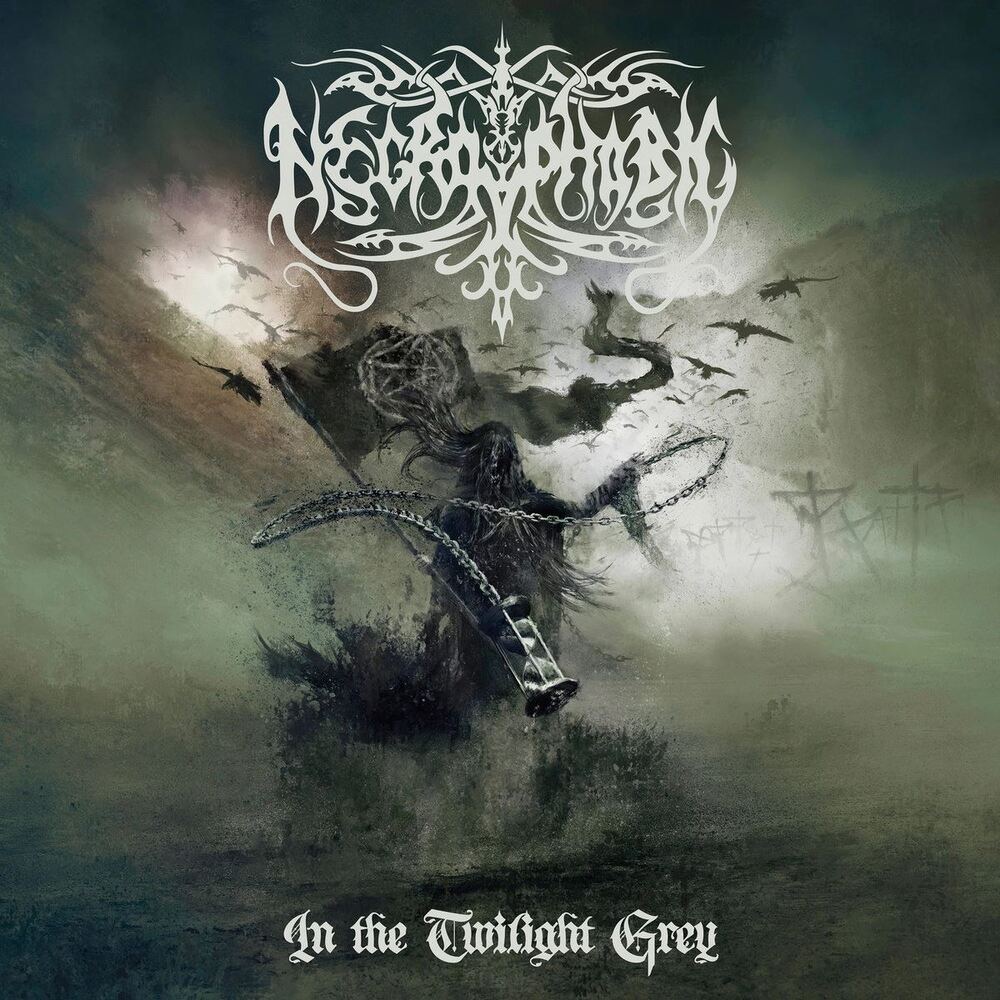 |
Country: Poland
Style: Progressive Rock
Rating: 8/10
Release Date: 5 Apr 2024
Sites: Bandcamp | Facebook | Instagram | Official Website | Prog Archives | Twitter | YouTube
It ought to be easy to say that Amarok are my favourite Polish prog rock band but, like Norway, it's fair to say that Poland are punching seriously above their weight in that genre right now, so I can only say that they're one of my favourites. However, I gave their sixth album, Hero, a rare 9/10 and my Album of the Month in September 2021 and this seventh album is a worthy successor two and a half years on. What's more, it's an album that surprised me, albeit not immediately. For a while, it continues much in the same vein as Hero, which isn't a bad thing at all.
Hope Is kicks off with ominous bass tones and then adds exploring keyboards. There are narrative vocals from Marta Wojtas and sung ones from her husband Michał that work well together, even if it took me a few listens to get fully on board. What didn't take me a few listens is Michał's searing guitar solo that's right out of the Dave Gilmour playbook. It's timeless stuff, the sort of thing that could have been recorded in the sixties and still sounds just as perfect now. I like the countdown at the end too; it doesn't seem like the band can meet the timeframe of Marta's numbers, but they do and it works wonderfully, wrapping up just like that.
If that solo reminds us of Gilmour, and I don't see how it can't, then Stay Human reminds us of Pink Floyd as a whole. You wouldn't mistake it for a Floyd song, but it has exactly the same sort of build that's apparently effortless but still gets under our skin so that we find ourselves grooving along with it even a couple of minutes into our first listen. That's the sort of songwriting magic that most of the musical world wishes they could buy in a bottle and, in the absence of such a quick solution, spends years trying to figure out. Amarok have that down just like Floyd do.
There's more Gilmour-style soloing to kick off Insomnia, with some hints of Mark Knopfler too, and it's so far so expected. However, Trail adds two different directions to the sound. The first is to kick off with a dance beat, upping the electronicics in the way that someone like Steven Wilson might, but never leaving prog. Then it heavies up early in the second half, firmly remaining prog instead of metal but introducing a serious punch that's almost a prog rock take on the rhythmic aspect of djent guitars that sounds much better to my ears. It reminds me that, even with a few songs that sound rather like we expect, Amarok can't be taken for granted. They always bring surprises.
And those escalate with Welcome and Queen, not least because they're not sung by either Marta or Michał Wojtas. Drummer Konrad Zieliński takes over for the former, feeling like he'd find a true calling in one of the huge British alt prog bands like Radiohead or Muse. The song follows suit, the sort of prog song that seems designed to reach out to every corner of a huge stadium without any deliberate pandering to commercialism. He may not be a natural singer but he sounds good. And so does Kornel Popławski, Amarok's bassist who takes them in a completely different direction on the latter.
This is nothing like the songs that went before it on this album, though it flavours what follows it. Part of me thinks it's the least successful track here, because it utterly refuses to play along with the rest of the album, but part of me also thinks it's the most successful for the same reason. It's not one to ignore, that's for sure. It has a dark prog drive underneath it, but it feels more like an eighties post-punk song that finds some unusual grooves and some even more unusual sounds. It has some neat guitar feedback, some glorious percussion and vocals that veer from whispers all the way into punk. In addition to those vocals, Popławski also contributes a tasty violin solo.
And so the album changes, the remaining songs, with Michał Wojtas back at the mike, dipping into the various different textures outlined thus far. Perfect Run seems more subdued but grows more than anything else here on repeat listens. Don't Surrender is more commercial, hearkening back to the arena mindset of Welcome but with cleaner and catchier melodies, even adding a moment or two that reminds of the Beatles.
The last two tracks do much the same but in an even more stripped down form. Simple Pleasures, which is appropriately named, strips that mindset down to its basics, featuring a delightful, very delicate guitar solo during its second half. It's the longest song on the album at seven and a half minutes and it's like a fine wine to savour. Dolina follows suit to wrap up the album, even stripping away the instrumentation to make it a solo Michał Wojtas piece, told entirely with a harmonium and Wojtas's voice, eschewing English for once and delivering its story in plaintive Polish.
Those two are both delicate songs and, while they end Hope appropriately, they also leave us very aware that the album is over. I certainly found myself sitting in silence letting what it did soak in, before starting it over again and running through that emotional cycle. I don't think I like it quite as much as I liked Hero, but it's a close call and, while I've listened to Hero enough for it to not be still in that growing phase, this one's still growing on me. So I'm going with an 8/10 for now, with a strong possibility that I'll up it to a 9/10 soon.








